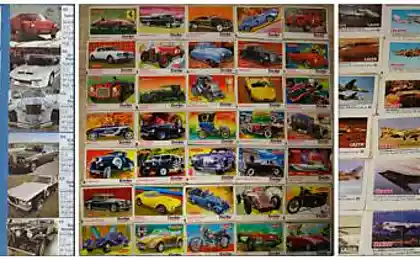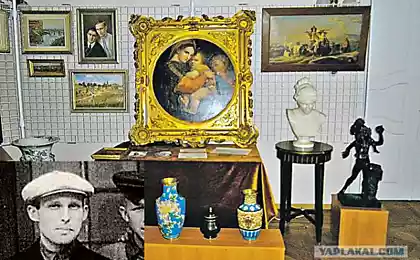866
In Brest museum contains the largest collection
19 photos from here
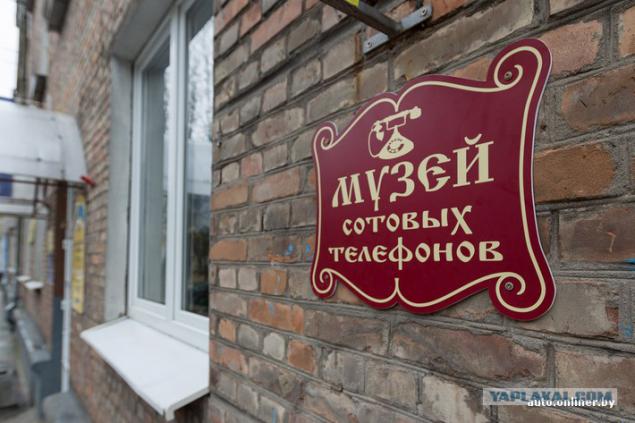
The museum in one of the workshops of Brest came naturally: the owners or forgotten "exhibits", or left because of too expensive repairs. Thus 10 years of existence, the company has gathered about 300 mobile phones from different manufacturers: from the "shovels" of the early 90's to the first prototype of a smartphone. "Initially, we do not think the creation of the museum - told the owner of the studio Sergei Onliner.by - and collected old phones to arrange the famous competition for throwing mobile phones».
The event was postponed several times, and eventually formed a considerable collection. And it can now be seen in the museum. By the way, this is the only such museum in Belarus - the closest geographically analogue is in St. Petersburg. Sergei showed "most-most" exhibits his collection.
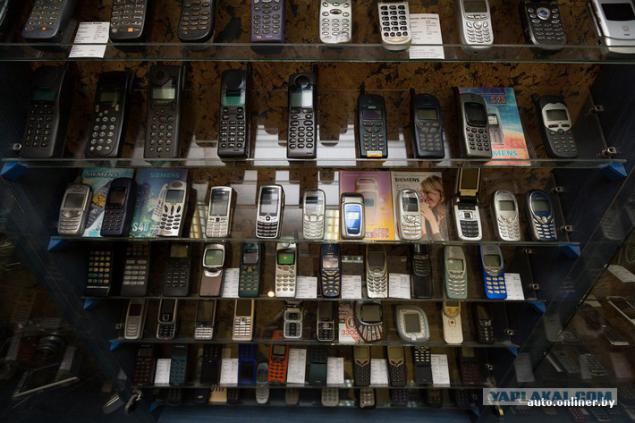
The oldest - the apparatus called Orbitel. He was released in 1989 and was estimated at $ 3,000. It can be worn in the portfolio, to carry in the car or walking down the street with him instead borsetki. It weighs so-called "mobile" about 2-3 kg. Keypad is on the tube, and it is connected with the base via wire. The base has an antenna, but most of it takes a battery that lasts about one hour. "These phones not only possessed the" new Russian ", - told the staff workshop. - Some of the richest edition provides its journalists stringers such Orbitel. It was rumored that during the August coup in Moscow in 1991 in the area of operations were only two public outlet. Correspondents ran up to him every hour and for the right to the first recharge, too, almost did not suit its local upheavals. "
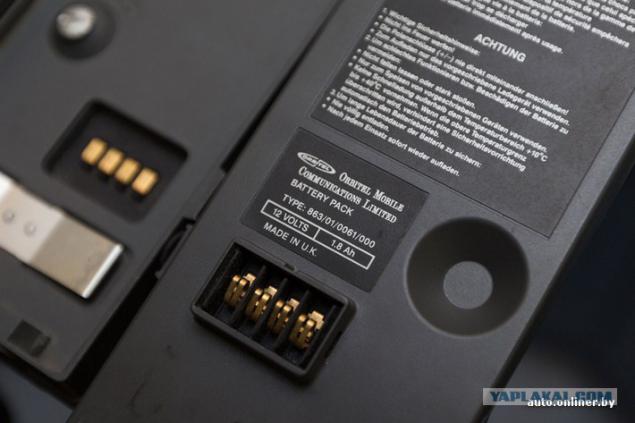
Then came the era of "shovels": phones have become smaller, the batteries were placed in a tube. "In the early nineties there was no cellular communication in our country, - says Sergey. - Well, almost was not. Brest - the city border. 20 years ago, some successful businessmen, a class that begins to grow rapidly, buying mobile to make calls from the western part of the city. The Fortress and generally near the border of these devices, "fished" the Polish network. To make a call to your business partners, people went to a different part of Brest. "
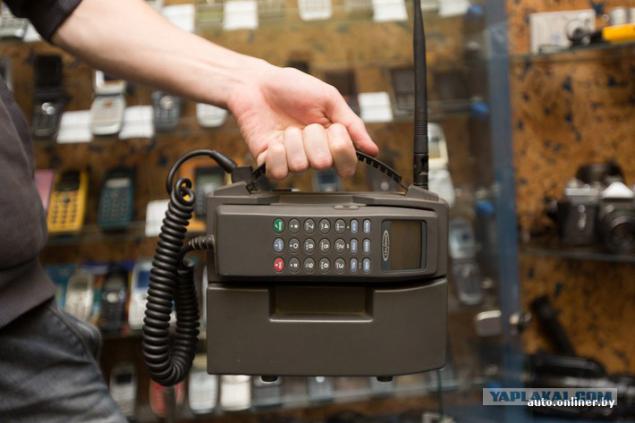
Collection of old machines and complementary patterns that fall peregonschiki Car: cell included in some models. For example, not too often you can find a mobile phone logo Audi - «Ring». In Belarus, in those days they could not be used. People came to the service and heard the bitter truth about the futility of European technology allowed.
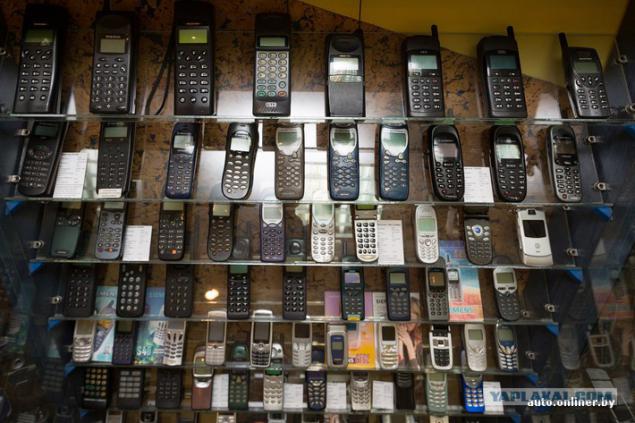
The most "patsansky» - Nokia 8910i. The company was originally positioned as a fashion phone model. He became very famous thanks to the movie about James Bond - at 007 was a model in black and white. Two or three 8910i classic black entered the arms of Frank, the protagonist of a series of paintings "The Transporter." Phone spectacularly opened by pressing the thumb and index fingers on the buttons on the sides - detachable part of the body moves down. "This" trick "at the time liked men who want to impress - suggests Sergei. - For years, when he was popular, the Nokia cost quite a lot - about $ 600. By the way, it is still buying, though, the price dropped to an average of $ 100. "
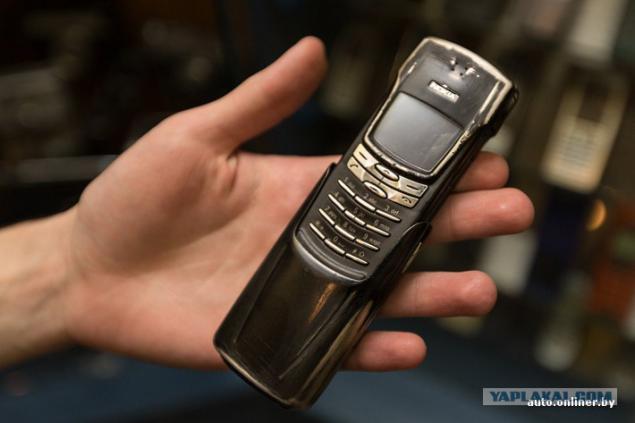
The smallest - Panasonic GD 55. The Japanese company often produces unique model. One of the ideas was to create the smallest "CellPhones" as opposed to "spades" early 90s. The stands of the Brest museum it is almost at a central location of the exhibition - apparently, the audience is not overlooked. "" MobilCom "was equipped with a durable ring for cord - told the service. - Initially, the Japanese hoped that GD 55 will be worn instead of the pendant around her neck. I understand that once this phone hit the Guinness Book of Records as the smallest, but later shifted its other "microscopic" cell. We also have competitors in this Panasonic - "clamshell" Maxon MX 7920. This company does not already exist, and their mini-phone, which is represented in our museum is still working. It operates it is not 100, but is included as many of our exhibits. "
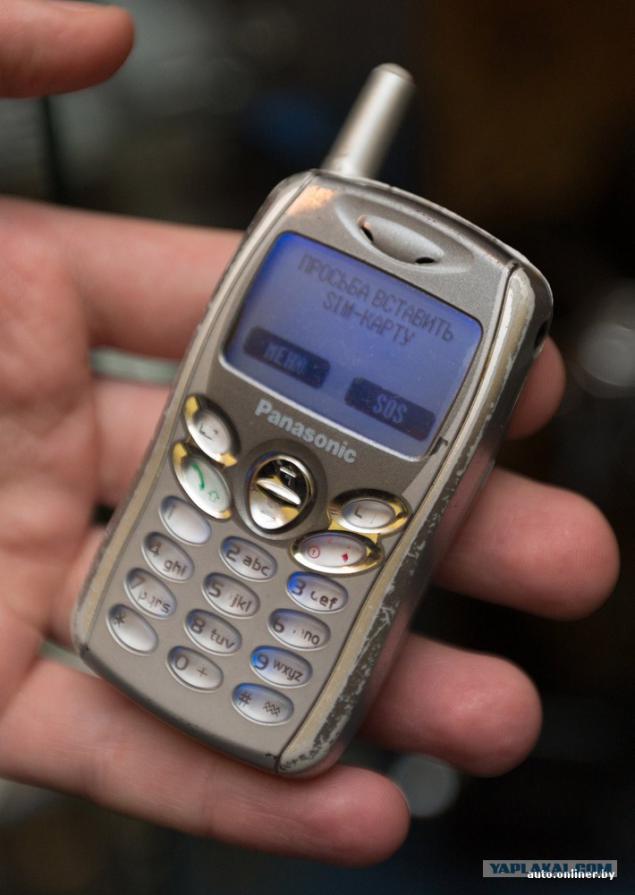
The most feminine. At dawn, the prevalence of some cellular companies have decided to release a model designed exclusively for the beautiful half of humanity. One of the first in this segment was the Samsung A400 - «clamshell" with rosettes on the body. The most popular color of this model was the red. "It is true that women are not able to use this mobile phone for a long time - draws attention to Alex. - And not because of the fickle tastes. Samsung is in those years used a strange plastic in their phones, he "molted" and leave stains on your hands or clothes. Women were offered a replacement - Panasonic G70, or, as it was called by the people, "powder compact". "
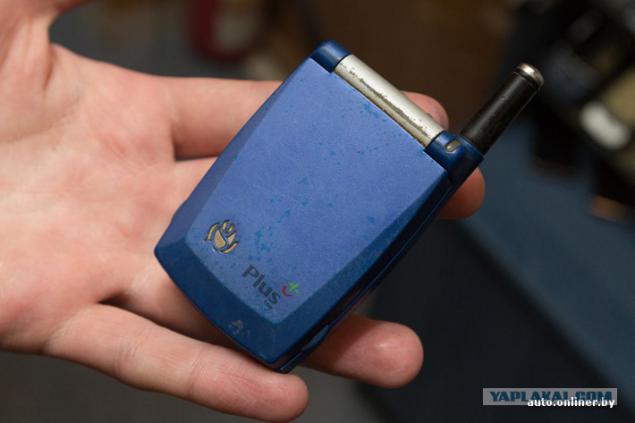
...
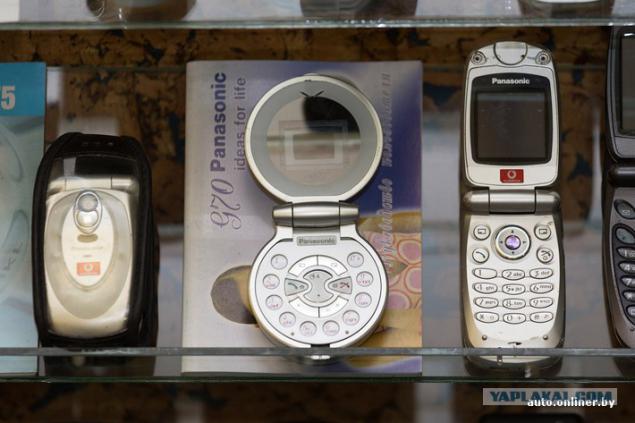
Most budget - Siemens CX75. "This phone can be said to become the founder of the boom of mobile phones in our country - says Alex, one of the masters of Brest company. - He was supported Internet access, MP3, memory stick. They appeared in our market, and there were days when brought in for repair only this model. So popular and relatively inexpensive phone. Before CX75 one of the most common low cost handsets could be called Nokia 6310i - the famous "discoverer of beer." However, it took not only because of good body. The 6310i has been integrated locking function to connect to third-party conversation. If someone was trying to listen to the conversation icon lights "lock" and the connection is automatically ended abruptly. "
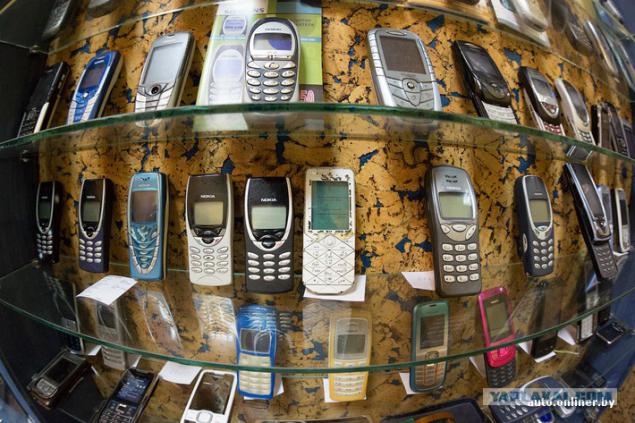
According to Alexei, there are a few amusing nominations. For example, the award for the best "student" on the right goes to the phone Nokia N-Gage. Best device for games during boring lectures "dosmartfonovuyu" era was not found.
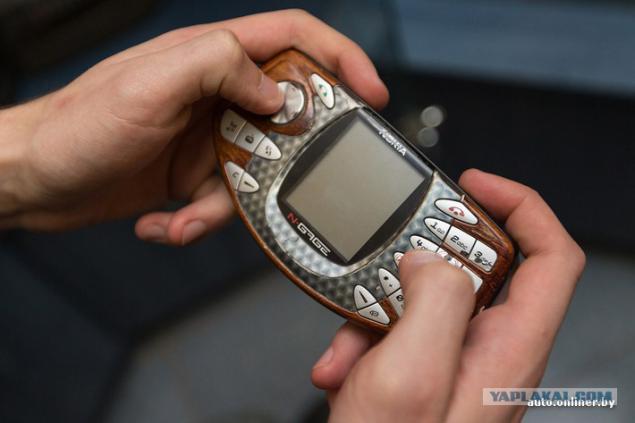
And the most "smartfonoobraznymi" were Nokia 7610, the first BlackBerry, the representatives of line Symbian.
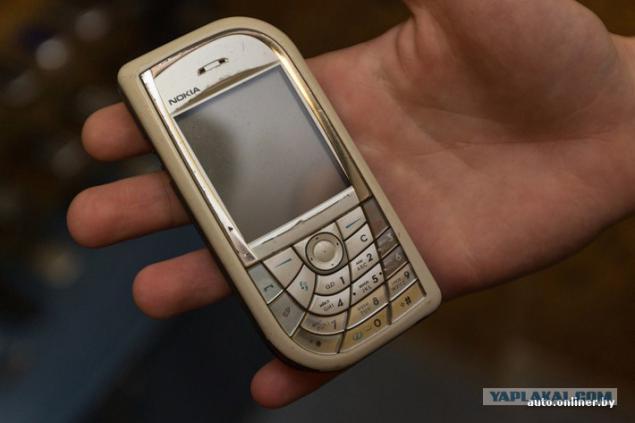
Most music can be called several models: Nokia 7380 (which was more like a player than a mobile phone, and has a trackball instead of a keyboard) that looks like him (only slider with keyboard) Samsung X830 and, of course, Siemens SL45 - the first phone with a slot memory card, where you can download music.
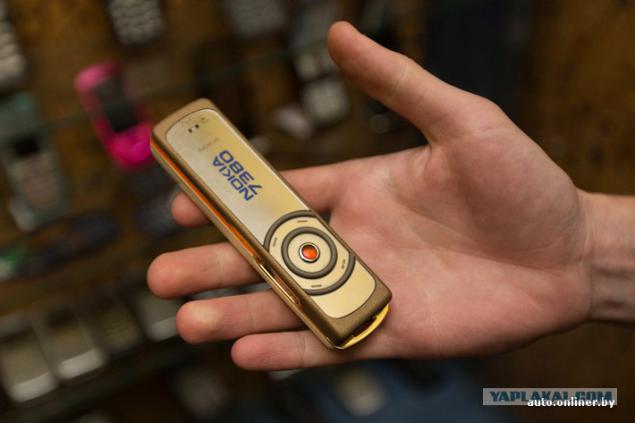
...
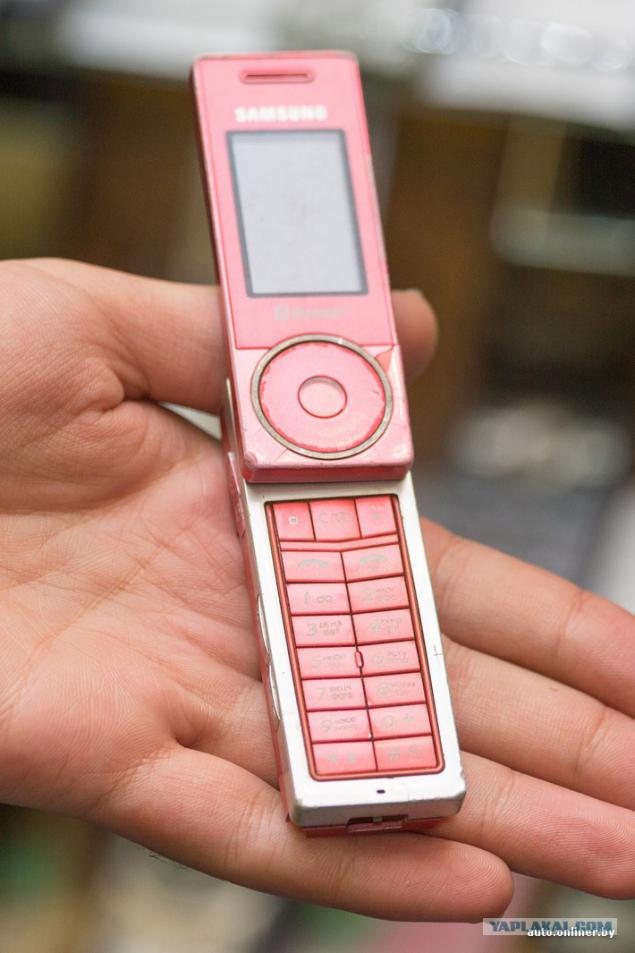
And, perhaps, the main nomination - the first. However, the winner in each defines it himself.
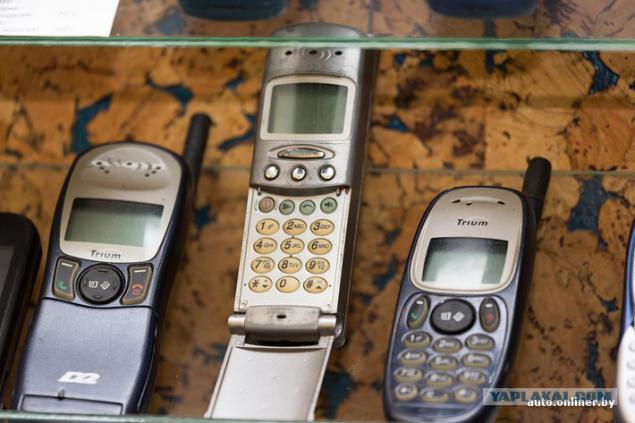
...
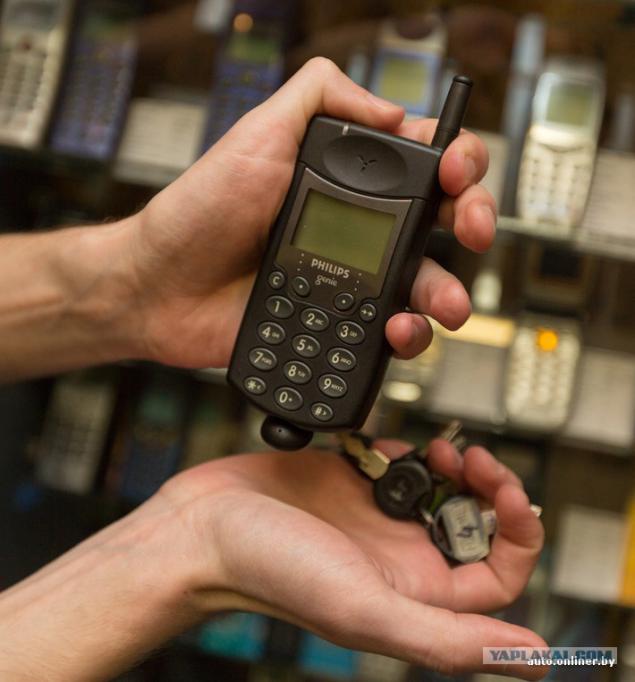
...
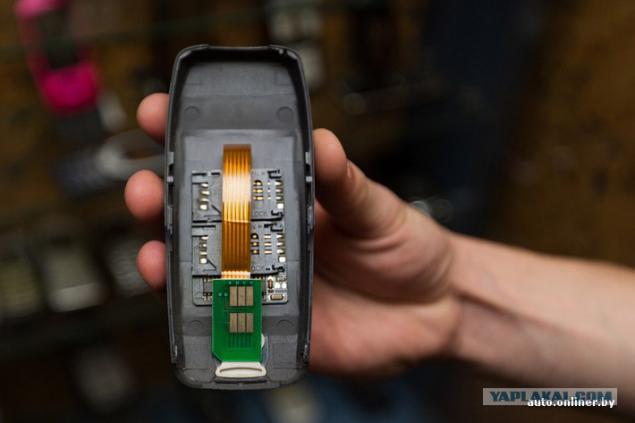
The collection of 300 mobile phones museum visitors - both schoolchildren and pensioners - always find their first phones. As it turned out, the story of the devices, which developed rapidly in the eyes of our generation, attracting residents, regardless of age. Museum only a few weeks, he has already become a landmark of Brest. "So far, all the exhibits are placed in a small room, - says the owner of the studio Sergei. - But the collection is growing with every broken machine, we left. We strive to Japanese competitors - where each model of each producer is on a separate stand, under glass. They have such a museum has become an object of art and at the same time historical science. However, to our collection at the University of Brest treated scientifically. Recently, teachers History Department offered to students to write a thesis on the history of mobile phones, based on our exhibits. "
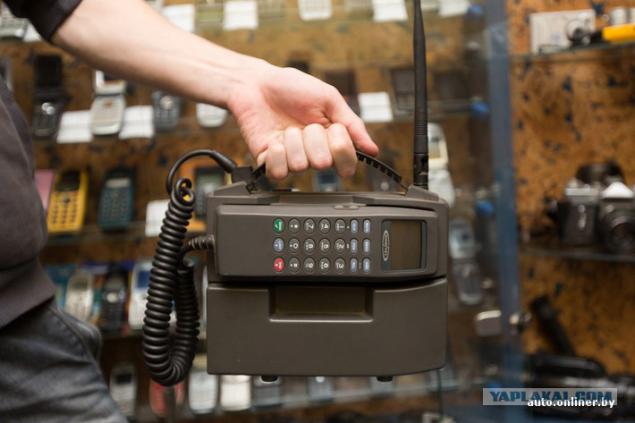
Thank you all for your attention. More photons source
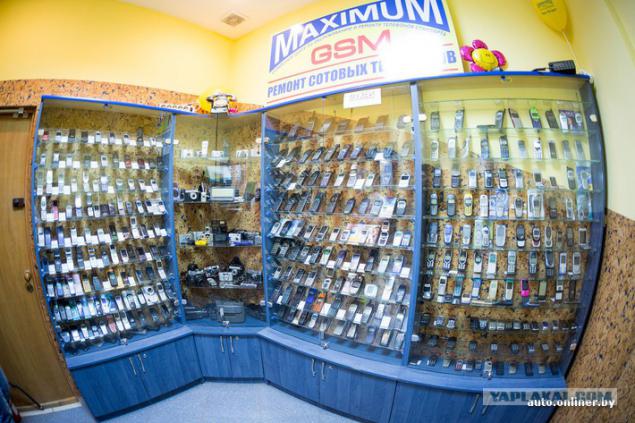
Source:

The museum in one of the workshops of Brest came naturally: the owners or forgotten "exhibits", or left because of too expensive repairs. Thus 10 years of existence, the company has gathered about 300 mobile phones from different manufacturers: from the "shovels" of the early 90's to the first prototype of a smartphone. "Initially, we do not think the creation of the museum - told the owner of the studio Sergei Onliner.by - and collected old phones to arrange the famous competition for throwing mobile phones».
The event was postponed several times, and eventually formed a considerable collection. And it can now be seen in the museum. By the way, this is the only such museum in Belarus - the closest geographically analogue is in St. Petersburg. Sergei showed "most-most" exhibits his collection.

The oldest - the apparatus called Orbitel. He was released in 1989 and was estimated at $ 3,000. It can be worn in the portfolio, to carry in the car or walking down the street with him instead borsetki. It weighs so-called "mobile" about 2-3 kg. Keypad is on the tube, and it is connected with the base via wire. The base has an antenna, but most of it takes a battery that lasts about one hour. "These phones not only possessed the" new Russian ", - told the staff workshop. - Some of the richest edition provides its journalists stringers such Orbitel. It was rumored that during the August coup in Moscow in 1991 in the area of operations were only two public outlet. Correspondents ran up to him every hour and for the right to the first recharge, too, almost did not suit its local upheavals. "

Then came the era of "shovels": phones have become smaller, the batteries were placed in a tube. "In the early nineties there was no cellular communication in our country, - says Sergey. - Well, almost was not. Brest - the city border. 20 years ago, some successful businessmen, a class that begins to grow rapidly, buying mobile to make calls from the western part of the city. The Fortress and generally near the border of these devices, "fished" the Polish network. To make a call to your business partners, people went to a different part of Brest. "

Collection of old machines and complementary patterns that fall peregonschiki Car: cell included in some models. For example, not too often you can find a mobile phone logo Audi - «Ring». In Belarus, in those days they could not be used. People came to the service and heard the bitter truth about the futility of European technology allowed.

The most "patsansky» - Nokia 8910i. The company was originally positioned as a fashion phone model. He became very famous thanks to the movie about James Bond - at 007 was a model in black and white. Two or three 8910i classic black entered the arms of Frank, the protagonist of a series of paintings "The Transporter." Phone spectacularly opened by pressing the thumb and index fingers on the buttons on the sides - detachable part of the body moves down. "This" trick "at the time liked men who want to impress - suggests Sergei. - For years, when he was popular, the Nokia cost quite a lot - about $ 600. By the way, it is still buying, though, the price dropped to an average of $ 100. "

The smallest - Panasonic GD 55. The Japanese company often produces unique model. One of the ideas was to create the smallest "CellPhones" as opposed to "spades" early 90s. The stands of the Brest museum it is almost at a central location of the exhibition - apparently, the audience is not overlooked. "" MobilCom "was equipped with a durable ring for cord - told the service. - Initially, the Japanese hoped that GD 55 will be worn instead of the pendant around her neck. I understand that once this phone hit the Guinness Book of Records as the smallest, but later shifted its other "microscopic" cell. We also have competitors in this Panasonic - "clamshell" Maxon MX 7920. This company does not already exist, and their mini-phone, which is represented in our museum is still working. It operates it is not 100, but is included as many of our exhibits. "

The most feminine. At dawn, the prevalence of some cellular companies have decided to release a model designed exclusively for the beautiful half of humanity. One of the first in this segment was the Samsung A400 - «clamshell" with rosettes on the body. The most popular color of this model was the red. "It is true that women are not able to use this mobile phone for a long time - draws attention to Alex. - And not because of the fickle tastes. Samsung is in those years used a strange plastic in their phones, he "molted" and leave stains on your hands or clothes. Women were offered a replacement - Panasonic G70, or, as it was called by the people, "powder compact". "

...

Most budget - Siemens CX75. "This phone can be said to become the founder of the boom of mobile phones in our country - says Alex, one of the masters of Brest company. - He was supported Internet access, MP3, memory stick. They appeared in our market, and there were days when brought in for repair only this model. So popular and relatively inexpensive phone. Before CX75 one of the most common low cost handsets could be called Nokia 6310i - the famous "discoverer of beer." However, it took not only because of good body. The 6310i has been integrated locking function to connect to third-party conversation. If someone was trying to listen to the conversation icon lights "lock" and the connection is automatically ended abruptly. "

According to Alexei, there are a few amusing nominations. For example, the award for the best "student" on the right goes to the phone Nokia N-Gage. Best device for games during boring lectures "dosmartfonovuyu" era was not found.

And the most "smartfonoobraznymi" were Nokia 7610, the first BlackBerry, the representatives of line Symbian.

Most music can be called several models: Nokia 7380 (which was more like a player than a mobile phone, and has a trackball instead of a keyboard) that looks like him (only slider with keyboard) Samsung X830 and, of course, Siemens SL45 - the first phone with a slot memory card, where you can download music.

...

And, perhaps, the main nomination - the first. However, the winner in each defines it himself.

...

...

The collection of 300 mobile phones museum visitors - both schoolchildren and pensioners - always find their first phones. As it turned out, the story of the devices, which developed rapidly in the eyes of our generation, attracting residents, regardless of age. Museum only a few weeks, he has already become a landmark of Brest. "So far, all the exhibits are placed in a small room, - says the owner of the studio Sergei. - But the collection is growing with every broken machine, we left. We strive to Japanese competitors - where each model of each producer is on a separate stand, under glass. They have such a museum has become an object of art and at the same time historical science. However, to our collection at the University of Brest treated scientifically. Recently, teachers History Department offered to students to write a thesis on the history of mobile phones, based on our exhibits. "

Thank you all for your attention. More photons source

Source:

